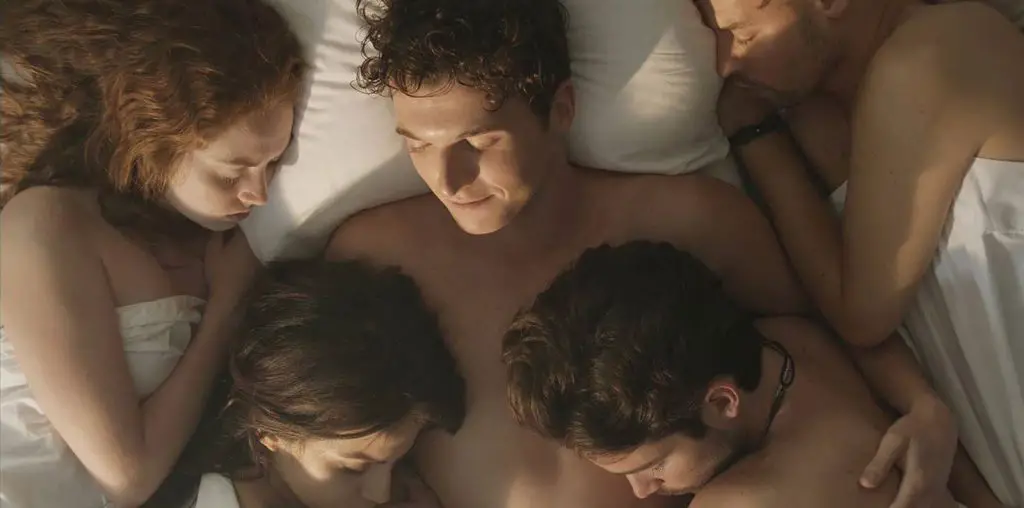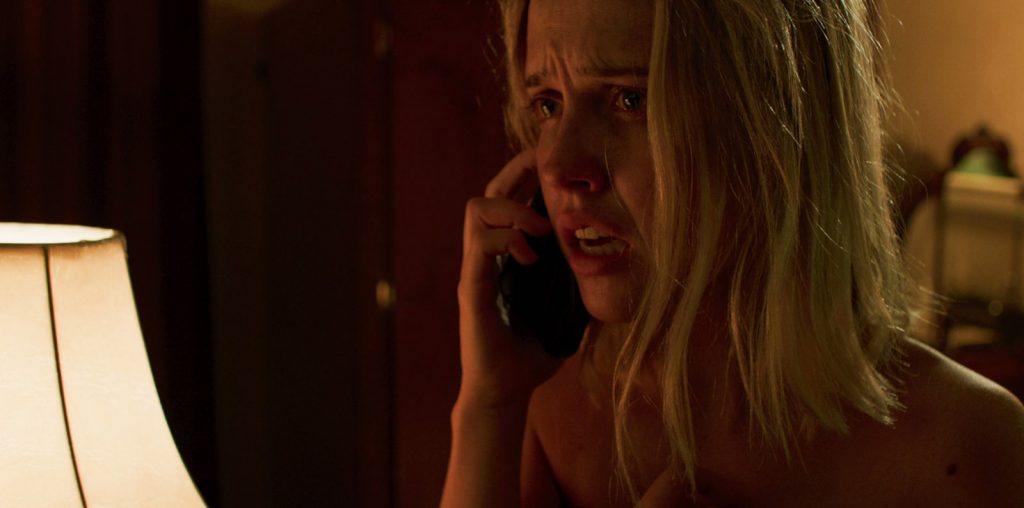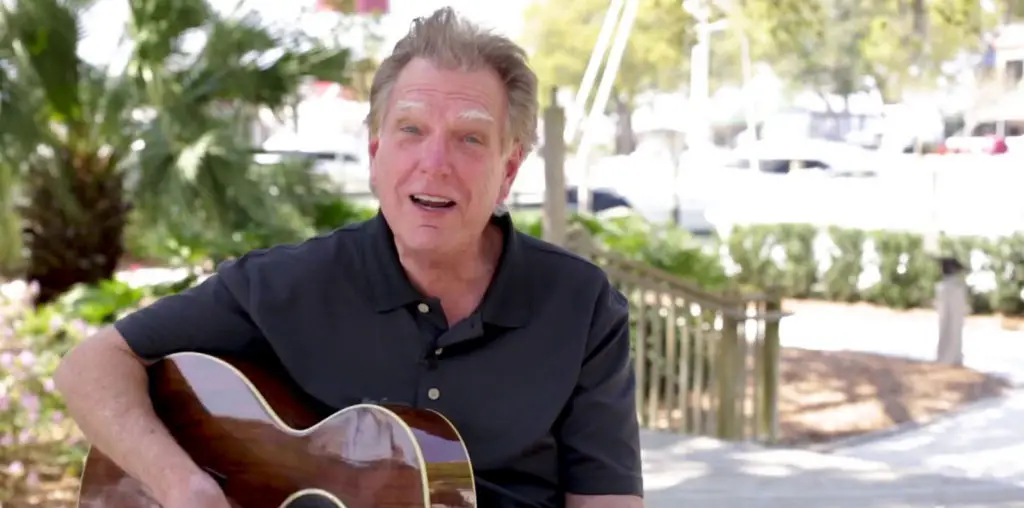
BOOTLEG FILES 546: “Odor in the Court” (1934 short comedy starring Bobby Clark and Paul McCullough).
LAST SEEN: It is on YouTube.
AMERICAN HOME VIDEO: It was included in an anthology collection of public domain titles.
REASON FOR BOOTLEG STATUS: A long-unseen production featuring an elusive comedy team.
CHANCES OF SEEING A COMMERCIAL DVD RELEASE: Only as part of a collection of Clark and McCullough films.

Last week’s news concerning Robin Williams’ suicide continues to resonate with the late star’s fans. Sadly, Williams is not the first comic actor to take his own life. One of the most unfortunate stories involving the self-inflicted death of a man that made a living generating laughter goes back to the 1930s, and it involves a comedy star that is all but forgotten today.
Unless you are a near-rabid devotee to old-time comedy, you are probably unfamiliar with the team of Bobby Clark and Paul McCullough. They began their careers as circus acrobats before working their way through vaudeville and burlesque until they reached stardom on the New York and London stages. When sound came to movies, Clark and McCullough were recruited by Hollywood to star in a series of two-reelers, first under Fox and then under RKO.
But calling Clark and McCullough a team might be something of a stretch. As Lawrence J. Epstein noted in his 2004 book “Mixed Nuts,” the division of labor and laughs was weirdly divided. “It is odd to see the pair work because they aren’t really a team,” Epstein observed. “Clark dominates throughout, and McCullough lurks out of the spotlight, a second banana who observes and assists but stays out of the way of the laughs.”
The real problem here, at least in terms of their films, was that Clark was more obnoxious than funny. This was because the comic never figured out how to readjust his performing from a theatrical setting (where he was playing to the last seats in the balcony) to the studio (where the camera magnified his mugging and leering, with cruel effects). Clark even tried too hard in his appearance to be funny: he wore painted on glasses, a pork pie hat and an oversized jacket while he used a large cigar and a thick cane as props. McCullough, however, seemed genuinely funny – he boasted a big smile and an infectious nasal laugh, and his costume of a ten gallon hat, tiny clip-on mustache and bushy raccoon coat was amusing to see. Clark tried and failed to look like a fool, but McCullough really looked like a happy nut.
The Clark and McCullough films are mostly regarded as terrible by contemporary film critics, due in large part to Clark’s overbearing presence. But many writers have grudgingly acknowledged the duo hit their mark with a 1934 effort called “Odor in the Court” – and this was one of the few times that McCullough managed to get a decent share of laughs.
“Odor in the Court” finds Clark and McCullough as a pair of shyster lawyers called Blackstone and Blodgett. They are willing to blatantly tell lies and invent scenarios for their prospective clients – and when one would-be auto accident victim insists that he is not injured, the lawyers happily shred his clothing and punch his face to create the impression of wreckage. (The fact they forgot to get the license plate responsible for the alleged injuries puts a halt to that scheme, leaving their would-be client in tattered clothing and a huge black eye.)
The funniest scene in the short involves the lawyers killing time (after all, they have no clients) by playing horseshoes in their office. Clark’s horseshoe goes flying into the overhead lighting fixture, showering the room with cracked glass. He insists that his throw doesn’t count. But McCullough, sitting with childlike grace on the back of a chair with his feet on the chair’s cushion, laughs at his partner’s mistake and insists, “It counts with me, all right!” When a client arrives with the offer to pay $1,000 for legal fees stemming from a divorce, McCullough grabs his chest and begins to moan in cardiac failure. Clark tosses the contents of a water glass at McCullough, who sputters and then begins to wave his arms in an approximation of the breast stroke before drying his face with an ink blotter. When Clark insists that they never lost case yet, McCullough mutters to their new client, “Nope, you’re our first customer.”
When the lawyers’ secretary arrives, Clark runs his mouth out with instructions on how to proceed with their case. But McCullough engages in one of the most engaging acts of scene stealing ever: while Clark and the secretary talk to each other, he takes a water pitcher, starts to drink from it, then stops and grabs a cowbell used to summon the secretary. McCullough turns the bell upside down and uses it like a goblet, pouring the water into its container and then drinking happily from its contents, pausing only to savor the taste of his drink. It is a charming act of pantomime – and Lord knows that Clark and McCullough’s films had a major deficit in charm.
The remainder of “Odor in the Court” is a burlesque-style riff on courtroom drama, with Clark hogging the action through outlandish behavior (complete with a marching band that offers acoustic emphasis on his antics). But McCullough, in his subversively slacker manner, steals the film. Sitting at the defendant’s table, he casually munches on nuts while Clark bloviates, pausing only to write down notes with a ridiculously oversized pencil. When a court officer named Gideon is called to swear in a witness, McCullough abruptly shoots out of his seat and yells, “Do your stuff, Giddy!”
If McCullough was marginalized in films, he was further kept out of the spotlight when the duo appeared in Broadway revues. Clark took it upon himself to write their material, and several sketches did not include McCullough. Why McCullough was given so little to do in the act, especially since he was a talented and charismatic presence, has never been determined.
In early 1936, following the completion of a series of RKO shorts and a grueling tour of the stage revue “George White Scandals,” McCullough checked himself into a Massachusetts sanitarium for treatment of what was described as nervous exhaustion. Upon his release, he stopped at a barber shop in Medford, Massachusetts, for a haircut and shave. He chatted amiably with the barber while being served, but after the barber was finished he grabbed a razor and slashed his wrists and neck. McCullough was rushed to a local hospital, where he died on March 25, 1936.
Clark commented on McCullough’s death with a cryptic statement that puzzled people for years. “I think it was something Paul couldn’t help,” he said. “Something that had been with him for a long time and he didn’t know it.” Clark never clarified or explained his statement, and he pursued a solo career that lasted until his death in 1960.
RKO and the entities that later assumed the studio’s titles never made the Clark and McCullough films available for TV syndication, so the duo remained unknown to the generations reared on television. I am aware of “Odor in the Court” turning up in one DVD anthology of public domain titles, but I am uncertain whether this is a public domain title – if it was, it would have been duped to death by now. A so-so 16mm print of the rarely-seen short is the source of a YouTube posting.
In any event, here is a special tribute to Paul McCullough, a genuinely amusing performer whose talents were never fully tapped and who left us hungry for more of his distinctive presence.
IMPORTANT NOTICE: The unauthorized duplication and distribution of copyright-protected material, either for crass commercial purposes or profit-free s***s and giggles, is not something that the entertainment industry appreciates. On occasion, law enforcement personnel boost their arrest quotas by collaring cheery cinephiles engaged in such activities. So if you are going to copy and distribute bootleg material, a word to the wise: don’t get caught. Oddly, the purchase and ownership of bootleg DVDs is perfectly legal. Go figure!



Odor in the Court is brilliant. McCullough’s reticence parallels Silent Bob’s in the Jay and Silent Bob films of half a century on. Bobby Clark is funny/obnoxious. His character an original take on the kind of marginal capitalist huckster W.C. Fields and Groucho Marx also took shots at. The humor is slapstick but by adults and for adults. Try to see this film through the eyes of the Depression 30s. Having arrived at that dead end after decades of various forms of hucksterism, people could enjoy the nihilism of this pair of idiots. They are are just out to claim their natural right to cheat people. We’re rooting for them to focus on the rich and evil. It’s a kind of morality play. . .written by Norman Krasna, though Clark did his own dialog.
Ooops- was misinformed; it’s not a Krasna film.
Hello,I log on to your blog named “The Bootleg Files: Odor in the Court | Film Threat” on a regular basis.Your writing style is witty, keep it up! And you can look our website about proxy list.
Paul McCullough lived in my hometown of Brookline, Mass., according to his death certificate.